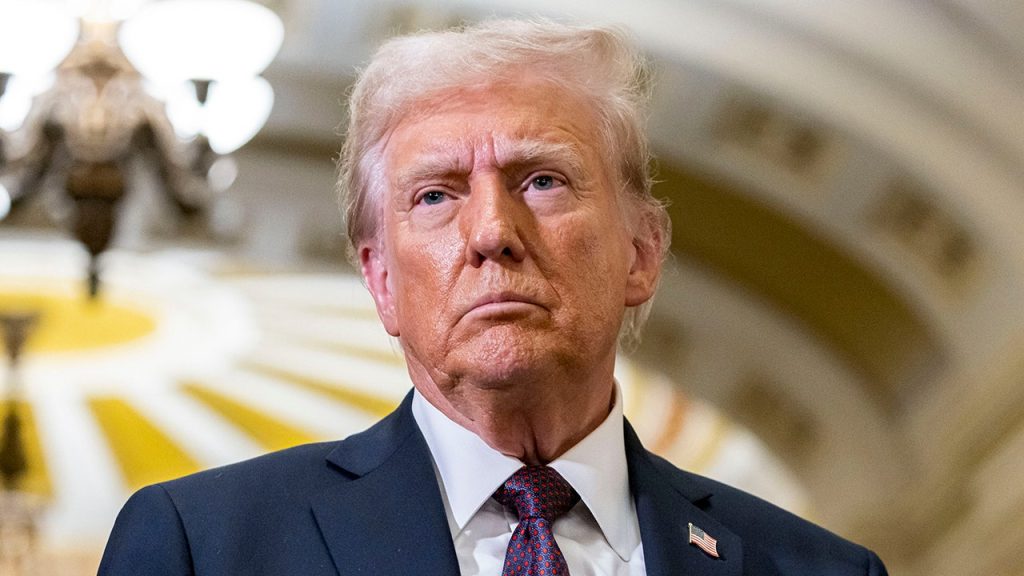The White House has expressed strong support for House Republicans’ latest proposal, known as the “One Big Beautiful Bill Act,” aimed at fulfilling key components of President Donald Trump‘s budgetary agenda. Officials are urging lawmakers to vote on the bill without delay, believing it will deliver economic growth and increased paychecks for Americans while also addressing national security and waste in government spending. The push comes amid ongoing discussions between the conservative House Freedom Caucus and Trump, as disagreements persist over certain provisions, particularly those related to Medicaid.
| Article Subheadings |
|---|
| 1) White House endorsement of the bill |
| 2) Ongoing negotiations among lawmakers |
| 3) Criticism and support from House Freedom Caucus |
| 4) Impact of the bill on Medicaid and other social programs |
| 5) Future implications for the Trump administration |
White House endorsement of the bill
The White House has communicated its robust backing for H.R. 1, referred to as the “One Big Beautiful Bill Act.” This significant legislation seeks to fulfill major components of President Trump‘s agenda, focusing on creating higher wages, stimulating economic growth, and optimizing federal spending. In an official statement, the administration described the bill as essential for realizing promises made by Trump during his campaign. By highlighting aspects such as enhancing border security and improving national defense, the administration sees this bill as a multi-faceted approach to addressing various socioeconomic issues faced by Americans.
Ongoing negotiations among lawmakers
In an effort to advance the bill, key members of the House Freedom Caucus met with President Trump and House Speaker Mike Johnson to discuss the complexities surrounding its passage. Andy Harris, the caucus chairman, has indicated that while there is a strong desire to pass the legislation quickly, certain issues related to Medicaid coverage could potentially delay the vote. The Freedom Caucus’ meeting at the White House underscores the importance of aligning various factions within the party to ensure a united front as they approach the legislative process.
Criticism and support from House Freedom Caucus
Despite the encouragement from the White House, the House Freedom Caucus has raised concerns regarding specific provisions within the proposed legislation. Some caucus members are advocating for more stringent cuts to Medicaid, particularly for individuals who became eligible under the Affordable Care Act. Additionally, they are pushing for a complete repeal of the prior administration’s Inflation Reduction Act, which includes green energy subsidies. These contentious points pose a challenge for Republican leadership as they strive to unify their members around a bill that can attract bipartisan support while meeting the demands of conservative factions within the House.
Impact of the bill on Medicaid and other social programs
The “One Big Beautiful Bill Act” has generated considerable debate regarding its potential impact on Medicaid. With House conservatives insisting on cuts to the expanded Medicaid population, it raises critical questions about healthcare accessibility for low-income Americans. The administration aims to strike a balance between fiscal responsibility and protecting essential social safety net programs. There is widespread concern about whether these changes will disproportionately affect vulnerable groups, and advocacy organizations are keeping a close watch on the bill’s provisions as discussions unfold in Congress.
Future implications for the Trump administration
As the legislative process continues, the outcome of the “One Big Beautiful Bill Act” will likely have significant ramifications for the Trump administration. The administration perceives the passage of this bill as crucial to reinforcing Trump‘s image as a leader who delivers on his promises. Should the bill fail to pass, it could represent a substantial setback for both Trump and the Republican Party ahead of the upcoming elections. Furthermore, a successful passage may pave the way for more aggressive policy changes in future legislation, particularly in areas such as healthcare and taxation.
| No. | Key Points |
|---|---|
| 1 | The White House is urging immediate action on the “One Big Beautiful Bill Act.” |
| 2 | House Freedom Caucus members are advocating for more significant Medicaid cuts. |
| 3 | Disagreements within the GOP could delay the vote on the bill. |
| 4 | There are concerns about the impact of the bill on vulnerable populations. |
| 5 | The outcome may affect the political future of the Trump administration. |
Summary
The ongoing negotiations surrounding the “One Big Beautiful Bill Act” demonstrate the complexities of coalition-building within the Republican Party as various factions vie for their interests. With the White House firmly in support of the bill, the ultimate success or failure of the legislation will significantly influence both Trump’s legacy and the party’s strategy heading into future elections. The implications for healthcare, taxation, and social services will resonate beyond the current legislative cycle, making this moment a pivotal one for American politics.
Frequently Asked Questions
Question: What are the key components of the “One Big Beautiful Bill Act”?
The bill aims to enhance economic growth, deliver larger paychecks for Americans, and improve national security while addressing waste and inefficiencies in federal spending.
Question: How does the House Freedom Caucus view the bill?
The caucus supports the general premise of the bill but is pushing for more aggressive cuts to Medicaid and a repeal of previous energy subsidies under the Inflation Reduction Act.
Question: What could happen if the bill does not pass?
Failure to pass the legislation could severely impact the credibility of the Trump administration and might hinder the Republican Party’s objectives moving forward as elections approach.
